Pas tragjedisë në stacionin e trenit në Novi Sad më 1 nëntor, ku humbën jetën 15 persona, është e sigurt se Serbia, me gjithë përpjekjet e qeverisë për të mohuar përgjegjësinë për aksidentin dhe për temat e imponuara ekonomike, rritjen e pagave, pensionet apo investimet e huaja, të hyjë në vitin e ardhshëm me barrën e krizave të rënda sociale dhe politike, shkruan media kroate Index.
Vdekje nën një grumbull hekuri dhe korrupsioni
Kur 15 njerëz u vranë në një moment nën një grumbull hekuri, betoni dhe xhami në stacionin hekurudhor të rindërtuar së fundmi në Novi Sad, dhe dy u plagosën rëndë me pasoja të përhershme, zemërimi u derdh në rrugët drejtuar qeverisë. të cilin aktivistët e shoqërisë civile dhe opozita e mbajnë si fajtorin kryesor.
Ata e shohin aksidentin si një krim të shtetit si pasojë e neglizhencës, pakujdesisë, papërgjegjshmërisë, korrupsionit dhe mënyrave për të bërë marrëveshje korruptive.
Autoritetet nuk i perceptojnë protestat si një rebelim qytetar, por i shohin si “shkaba” të opozitës dhe përpjekje për të rrëzuar qeverinë dhe presidentin. Megjithatë, kur studentët iu bashkuan protestave duke bllokuar të paktën 40 fakultete dhe rektorë në të katër qendrat universitare, duke marrë gjithnjë e më shumë mbështetje dita-ditës, u paralajmërua një atmosferë krejtësisht tjetër në shoqëri, por edhe presionet ndaj qeverisë dhe krizës. , do të jetë krejtësisht ndryshe. me sa duket, ato kalojnë në vitin 2025.
Aq më tepër që studentët filluan të marrin mbështetjen e sindikatave, dhe Shoqata e Artistëve Dramatikë qëndroi pranë tyre, duke u bërë thirrje aktorëve të nderojnë viktimat e Novi Sadit me 15 minuta heshtje para çdo shfaqjeje në teatrot e tyre, gjë që do të ndihmonte. rebelimi i studentëve në luftën për shoqëri më të mirë dhe më të drejtë mund të japë një vrull shtesë.
Ndërkohë që protestat vazhdojnë, në javën e dytë të dhjetorit, një nga dy tragjeditë e majit të vitit të kaluar – dy vrasjet masive në shkollën “Ribnikar” dhe fshatrat përreth Beogradit – mori epilog gjyqësor.
Vrasësi masiv Uroš Blažić u dënua në shkallën e parë me dënim maksimal prej 20 vitesh burgim dhe për shkak të peshës së krimit, ka pak mundësi që ai të rrëzohet në gjykatën e apelit.
Asnjë hap përpara në integrimin evropian
Serbia as vitin e fundit nuk ka lëvizur drejt anëtarësimit në Bashkimin Evropian.
Presidentja e KE-së Ursula von der Leyen vizitoi Beogradin në tetor dhe, ndonëse foli pozitivisht për rrugën e Serbisë drejt integrimit evropian, ajo tha se anëtarësimi në Union mbetet një “proces i bazuar në merita” dhe se secili vend zgjedh shpejtësinë dhe cilësinë e rrugës.
Më vonë doli se në raportin e tij të rregullt vjetor, Komisioni Evropian nuk kishte deklaruar progres, përkundrazi. Ajo veçanërisht nuk e ka parë në politikën e jashtme dhe të sigurisë, me vlerësimin se shkalla e përputhshmërisë me BE-në ka mbetur e pandryshuar.
Marrëdhëniet me Kinën dhe Rusinë
Marrëdhëniet me Kinën dhe Rusinë janë një shqetësim i veçantë për KE-në, kryesisht në shmangien e Serbisë që t’i bashkohet sanksioneve ndërkombëtare kundër Rusisë për shkak të pushtimit të Ukrainës dhe afërsisë me Kinën. Kritikat janë gjithashtu të forta në vend, sepse opozita dhe ekspertët tregojnë për favorizimin e Kinës në shumë projekte infrastrukturore jotransparente në Serbi.
Ndërkohë, Beogradi i dërgon mesazhe publikut vendas dhe ndërkombëtar për politikën e pavarur dhe pavarësinë e vazhdueshme, duke këmbëngulur se ulet “vetëm në një karrige serbe” dhe se nuk heq dorë nga miqtë e tij tradicionalë Rusia dhe Kina në angazhimin e saj strategjik. për anëtarësimin në BE.
Klasteri 3 nuk është hapur ndërkohë për shkak se ambasadorët e vendeve të BE-së nuk janë pajtuar as në seancën e fillim dhjetorit. Kundër saj ishin tetë anëtarë – Holanda, Suedia, Finlanda, Bullgaria, Kroacia dhe shtetet baltike.
Komisioni Evropian në raportin e tij thekson se nuk ka parë përparim në sundimin e ligjit dhe lirinë e mediave, por është vënë në dukje se kriminelët e dënuar të luftës ende shikohen pozitivisht në Serbi.
Nuk ka progres për çështjen e Kosovës
Dialogu me Kosovën, një nga pikat kyçe të agjendës së progresit të Serbisë drejt Bashkimit, është ende në bllokim dhe pa rezultatet e pritura, por me tensione shtesë.
I fundit në seri është shpërthimi në kanalin ujor Ibër-Lepenac, të cilin Prishtina e konsideron si “akt terrorist” për të cilin është përgjegjës Beogradi zyrtar. Autoritetet serbe mohojnë çdo përfshirje dhe kërkojnë një hetim të pavarur ndërkombëtar.
Përveç kësaj, Beogradi nuk ka ngritur ende akuza kundër Milan Radojicic, i cili mori përgjegjësinë për konfliktin e vitit të kaluar midis një grupi paraushtarak serb dhe policisë së Kosovës, kur u vranë një polic i Kosovës dhe tre serbë nga veriu i Kosovës.
Ambiciet në rajon
Marrëdhëniet e Serbisë në rajon, veçanërisht me Bosnjë-Hercegovinën dhe Kroacinë fqinje, karakterizohen nga një retorikë politike reciproke e ashpër, herë pas here incidente, por pa pasoja dramatike për marrëdhëniet dypalëshe, të cilat nuk mund të thuhet se janë përmirësuar efektivisht, por edhe kanë mbetur prapa.
Kështu, në Beograd vendimi për emërimin e eurodeputetit kroat Tonin Pucula si raportues i PE për Serbinë u prit keq.
Kreu i shtetit serb ndër të tjera tha se Picula para se të vijë në Beograd duhet të kërkojë falje për atë që ka thënë për Serbinë dhe se për të duhet folur me shumë më shumë respekt sepse ai udhëheq politikë antiserbe.
Picula u përgjigj se qeveria në Serbi shpesh shfaq tendenca autoritare dhe anti-evropiane dhe se negociatat e pranimit nuk do të përfundojnë derisa marrëdhëniet të ndryshojnë, duke përfshirë skenën mediatike që kontrollohet kryesisht nga partia në pushtet.
Marrëdhëniet serbo-kroate u pasuan edhe me një aferë të supozuar spiunësh, pasi mediat e Beogradit në fund të gushtit njoftuan se “është arrestuar një spiun kroat”, dhe këtë e ka konfirmuar edhe ministri i Brendshëm, Ivica Daçiq.
Ministria kroate e Punëve të Jashtme dhe Evropiane njoftoi se nuk kishte asnjë informacion në lidhje me rastin apo konfirmim se “ka ndodhur me të vërtetë”.
Në qershor, Parlamenti Gjithëserb u mbajt si një shoqatë institucionale e përfaqësuesve politikë të popullit serb në Serbi, Republika Srpska, Federata e Bosnje dhe Hercegovinës, Mali i Zi, Maqedonia e Veriut dhe Kroacia, si dhe përfaqësues të tjerë në botë me synimi i “krijimit të përbashkët të politikës kombëtare”.
Një nga mesazhet ishte se populli serb përfaqëson një entitet të vetëm dhe në Deklaratën e miratuar thuhet se ky parlament nuk e përkrah Rezolutën për gjenocidin në Srebrenicë, e cila u votua në Kombet e Bashkuara në fund të majit.
Parlamenti shkaktoi reagime dhe zemërim të përzier në rajon, me BE-në dhe SHBA-në që tërhoqën dënime të heshtura dhe Departamenti i Shtetit u bëri thirrje udhëheqësve politikë në rajon që “të përdorin më mirë takimet e tyre për të promovuar stabilitetin dhe pajtimin rajonal”. bw





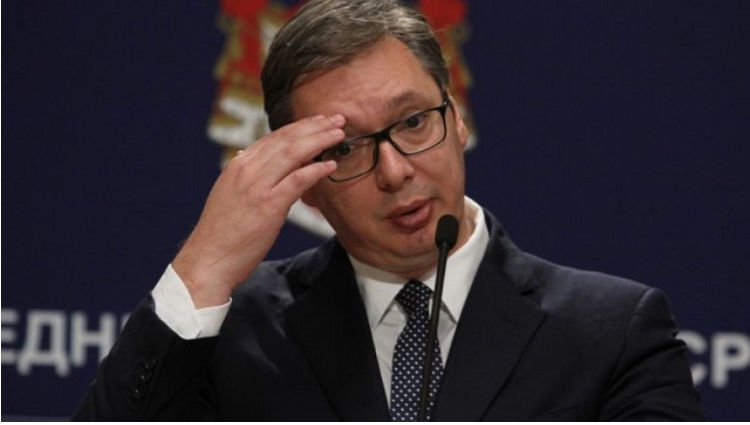
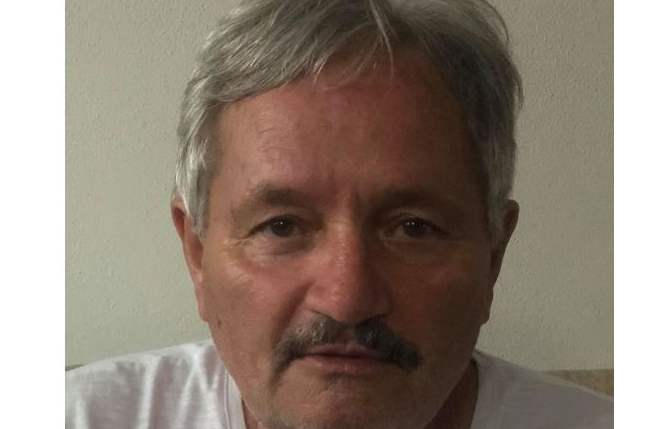

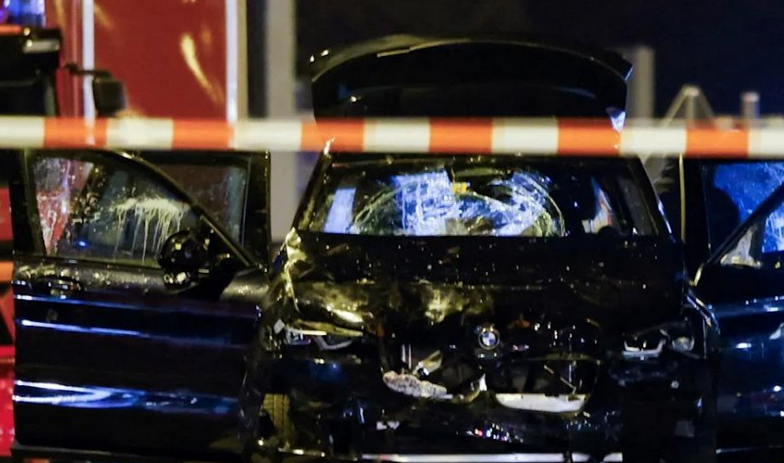
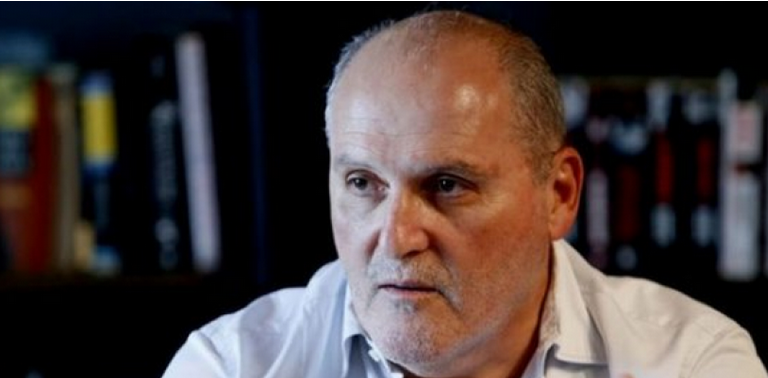


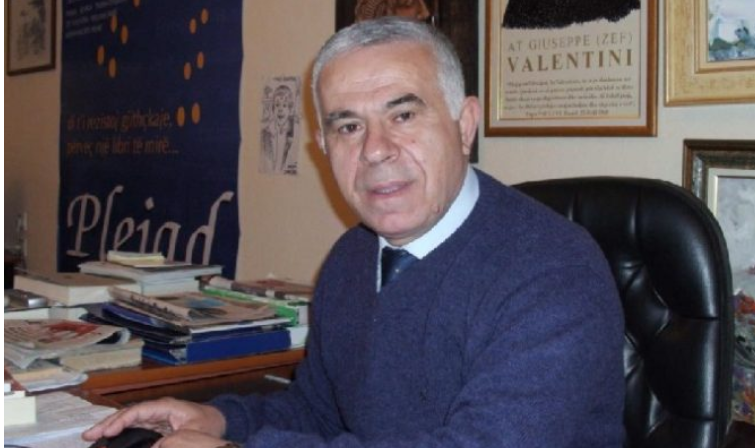
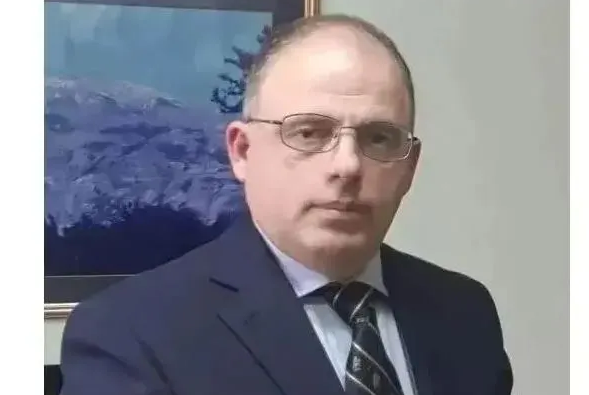
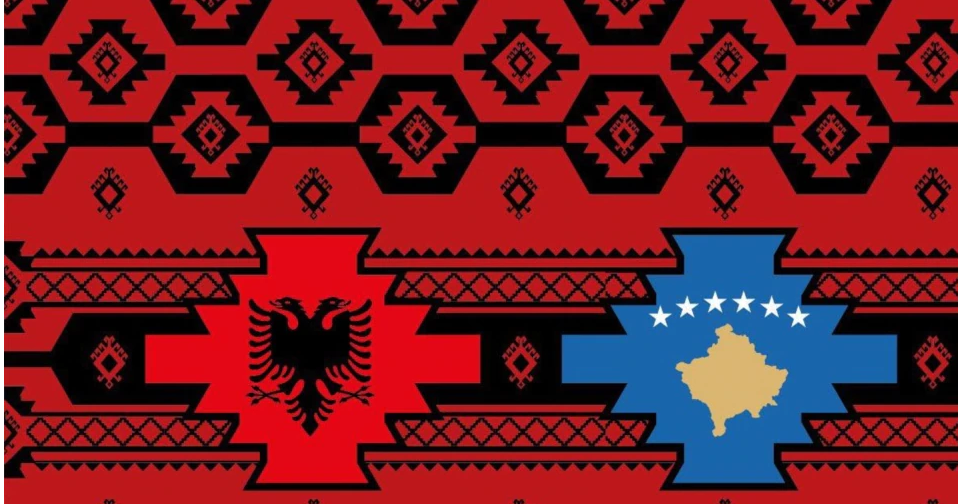

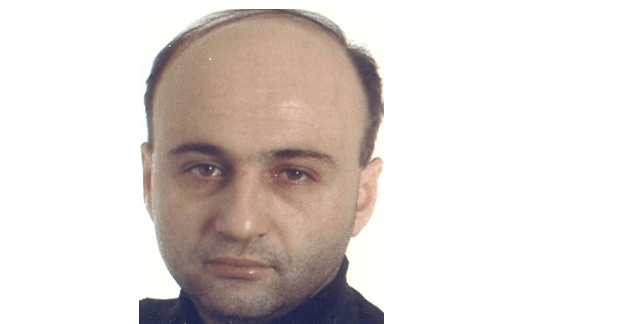
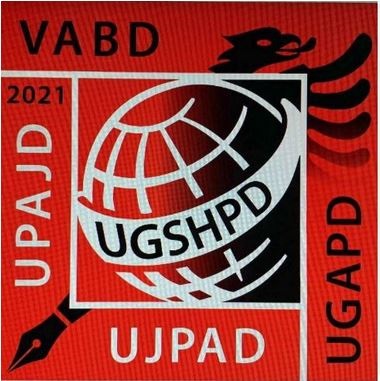













**** THE PLACE CALLED GREECE NEVER EXISTED BEFORE AS WE KNOW IT TODAY ******
The place called Greece never existed before as we know it today. The people who live in the so-called Greece today used to be called “Romej” during Byzantine Empire and “Raja” during Ottoman Empire times (except the Arvanites and Chams who used to be called always by their name like “Albani”, “Albanoi”, etc.) and the name “Greece” never existed during Byzantine times.
The people who live in the so-called Greece today are NOT the descendants of ancient Greece (as the world history knows it). That ancient culture and civilization (which is in fact an Illyrian-Pelasgian civilization, wrongly and deliberately named and misrepresented as “Greek” in modern times), unfortunately went extinct about 2000 yrs ago, like many other ancient civilizations (such as Latin civilization as well, language of which is spoken in the certain official religious ceremonies in Vatican today and for international medical terminology only).
During Ottoman times in the Balkans, after the great powers pushed for an uprising in the region that today is artificially called “Greece”, an independent country was formed during 1821-1832.
The majority of the population there (about 92%) was of Arvanite and Cham stock – both of Albanian ethnicity.
They also were the backbone of the uprising for independence from the Ottoman Empire – with 100% of the all senior leading commanders of the uprising for independence being of Albanian stock (Arvanites and Chams). The rest of the minority population (around of 8%) was of Aromanian, Slav, Turks, and Roma stock. There were no “Greeks” whatsoever, they did not exist as ethnicity, population or language at all, up until 1821-1832 period in that region.
The Arvanite Republic was the initial nucleus independent country established in the Morea/Peloponnese region by 1821. After the gain of independence, the region was so divided, and with a prolonged civil war that a real country could not be formed on the entire region.
Fearing the disintegration of the region after Ottomans left (and the possibility of a return of the Ottomans), Prince Otto of Germany was installed in by European powers and Russian Empire, in order to clear the mess and initiate nation – building there.
He was proclaimed King of the region by great European powers and the Russian Empire of that time and given, at the same time, plenipotentiary powers to rule.
The Prince Otto royal family in Germany (Bavarian dynasty) happen to be an admirer of the ancient civilizations, one of them being the extinct ancient “Greek” civilization, traces and archeological findings of which are also seen in that region called today “Greece” as well.
Being an ancient history romantic and buff, “living in a bubble” and being completely out of touch with the realities of the Illyrian Peninsula at that time, Otto came up with the idea (in collusion also with the then Russian Empire and an anti-Christian dangerous religious cult in that region at that time – some self-proclaimed “Orthodox” Church), that the only way to keep the place together and for a chance to build a country there, was to adopt/impose some kind of neutral/foreign ancient language and culture for all people living in that place, that will make possible for the people to stick together under one language and culture imposed on them.
Therefore, with a special royal decree, Otto proclaimed a version of the ancient artificial “Greek”/Koine language (the easier one to be taught and learned by people there in those times) as an official language of the place, and also came up with the new name for the place, calling it with a special royal decree “Greece” (a name without any historical and factual meaning).
Everything else was banned, and the new “country” formed, was ordered to be rebuild anew in resemblance of the old romantic view of the ancient extinct “Greek” civilization, starting with the buildings, names of people, places, cities and villages, regions, mountains, fields and all were changed to made-up names borrowed from the ancient literature of an imaginary ancient “Greek” civilization.
This of course was accompanied with money brought in by European powers to rebuild. The more people in that region agreed with the change of their true national and ethnic identity and declared themselves artificially “Greeks/Helenes” and adopted to the new order, the more money was to be pouring in.
Naturally, the strongest resistance to this artificial and made-up solution, was made by the Arvanites (who consider themselves to be pure Albanians at the same time – contrary to the today’s Greek governments laughable, nonsense, and desperate lying propaganda that falsely declares that “Arvanite of Greece speak Albanian but are not Albanians but Greeks”) and Chams, but at no avail.
It is legendary, the loss by one vote (the illegal vote of then French Ambassador) in the Price Otto’s rigged Parliament of that time, of Arvanite and Chams proposal to have the Albanian (Arvanite) language as an official language of the place called ‘Greece” today, and to name and call the new country “Arvanoi (Albania)” (instead of “Greece).
There is overwhelming scientific and factual evidence, archival and historical documents, as well as studies and publications by major world-renowned authors and authorities in the field, about all of the above.
One interesting fact here, is that one of the earlier German/Austrian well known historians and scientists of that time, Fallmerayer, alerted Prince Otto and others to this nonsense, of declaring a whole people and place by a name not belonging to them (so experimenting with them as they were guinea pigs), and injecting an extinct artificial language, culture and civilization on people who had no idea about it and did not belong to it at all. Well, Fallmerayer may have proven to be right.
By the way, Fallmerayer, is a banned figure and historian by the dictatorial klepto-theocracy regime in what is called “Greece” today.
Through a thorough fact finding mission and field observations during the same time (of Prince Otto’s installation to power in the region called “Greece” today), another world-renowned German historian, subject-matter expert and scientist of that time, Prof. Hans Heidenauer, came to the conclusion and reported back to German royal authorities that – “there are no ‘Greeks’ whatsoever in the region, they don’t exist – there are only people and a population who speak a language called Arvanite/Albanian and the people call themselves Arvanites/Albanians”.
Another earlier government fact-finding mission about the Albanian inhabited regions in Europe, commissioned by Napoleon Bonaparte (Emperor of France) around the year 1800, confirmed that, Albanian regions extended from Mediterranean Sea and Peloponnese up to Dalmatia and Danube river, and eastward beyond Vardar (Dardhar) river bordering Aegean Sea.
By the way, Germany is still paying for the Otto’s racist and ignorance blunder, even today. It has gotten stuck with the country so called “Greece”. It is now forced to pour free money, even today, out of Germany’s pocket (through European Union as well) year after year to keep it alive and going, as this “Greece” cannot stand on its own.
It is an artificial creation of Prince Otto’s ill-conceived fantasy and the malevolent aims of then Russian Empire and the dangerous religious cult/sect called “Orthodox” Church – a “zombie”, “fake”, “scam” and a “plagiarized” country so to speak, and the new generations of the Germans and Europeans are continuing to pay the price for it. To illustrate, during its existence since 1832, this so-called country of ‘Greece” has changed twice its official language and three times its national flag.
Moreover, what Prince Otto did back then, is tantamount to a silent ethnic cleansing by alteration (followed later on by mass murder, pogroms, holocaust, and ethnocide by succeeding “Greek” governments).
He forced inhabitants of a whole region/place (called “Greece” today) to change by force their culture, language, national and ethnic identity to something else that those people were not, so they could artificially change in order to look modern and civilized (like artificial ancient “Greeks” in Otto’s personal view) and possibly be united.
And of course, Arvanites and Chams (as the majority population in the region) suffered mostly from this ethnic cleansing – which was later on followed even with mass killings, ethnocide, holocaust, and mass expulsions of Arvanites and Chams (who refused to change and trade their Arvanite/Albanian language for a Koine “zombie” language), by zombie and dwarf “Greek” governments and regimes that followed into the 20th century.
All this revelation, informs another major and mission critical nodal point: history taught about what is called “Greece” today, it appears to be taught wrong. People are wrongly taught in schools that today’s “Greece” and its people are the direct descendants of “ancient Greeks”.
“Greece and Greeks” of today, to some extend, also falsely think they are superior to others just because they are called “Greeks” and their country “Greece” by decree (not by the virtue of the truth).
They also seem to falsely believe for some reason, they are entitled to the German and European money being handed out to them – as, it seems, they are unable to create any value-added contribution to the European economy, culture, art, business, science and technology.
The school textbooks and historiography should change, telling people the truth as it is.
And with this, will come many other changes, in the way we see relations with the country called “Greece” today.
Shkencëtarët e Rinj Shqiptaro-Amerikanë
(Young Albanian-American Scientists)
New York, Qershor 2018
(June 2018) ====================================================================================